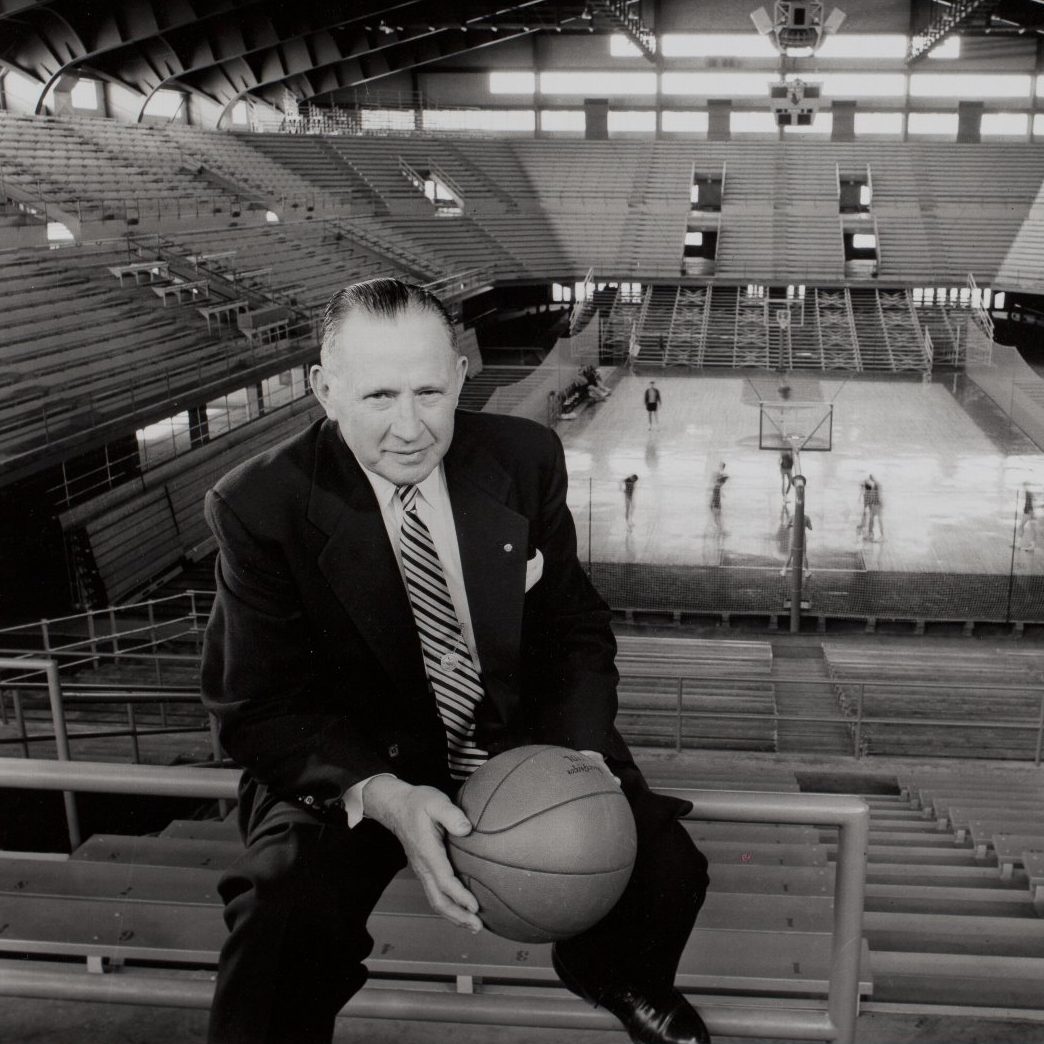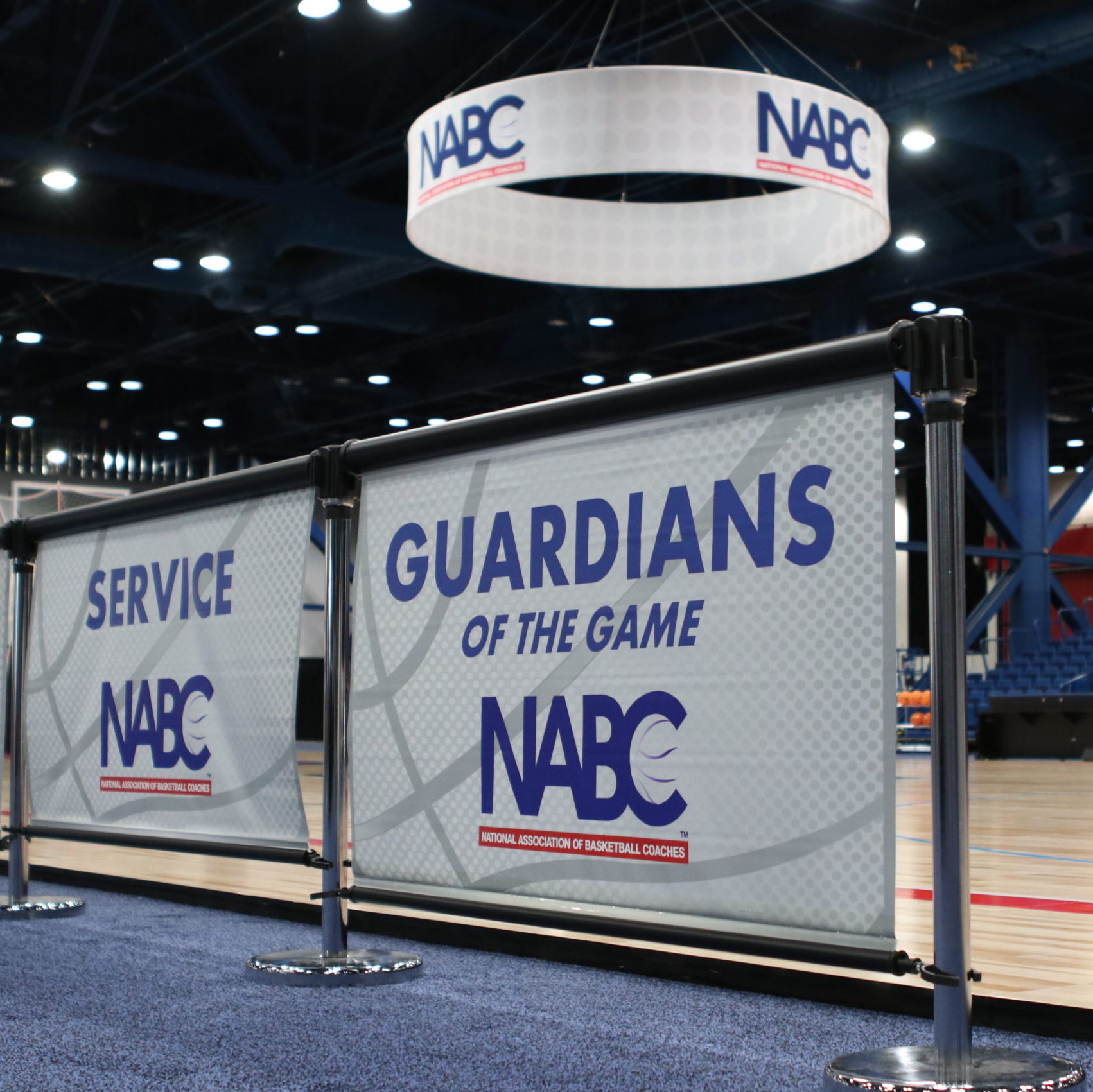National Association of Basketball Coaches
The NABC is a professional development and advocacy organization serving over 5,000 members in collegiate, scholastic and youth basketball.
What is the NABC?
Since its founding, the NABC has continually worked to advance all levels of basketball and operate as a collective national voice for coaches. In doing so, the NABC has established the following goals and objectives to pursue its mission:
- To promote the ideals of integrity, sportsmanship and teamwork among basketball coaches and the players whom they coach;
- To unify coaches on issues pertaining to basketball at all levels;
- To provide member services which address the professional and personal needs of coaches;
- To encourage coaches to serve as community outreach agents who elevate moral, ethical and educational values;
- To enlighten the general public, media, institutional educators, athletic administrators and other stakeholders to the fact that coaches make a positive impact on the sport and the young people whom they serve;
- To collaborate with the the NCAA and other governing bodies on legislation, policies and rules that impact the game of basketball.

Connected to Basketball History
The NABC was founded in 1927 by Forrest “Phog” Allen, the legendary University of Kansas men’s basketball coach. Formation of the NABC began as an emergency measure for the presentation of a united opinion after the Joint Basketball Rules Committee, then the central governing authority of the game, announced without notice that it had adopted a rule change that effectively eliminated the dribble.
Allen, a student of basketball founder James Naismith, organized coaches to take a stand in a nationwide protest which successfully postponed the adoption of the rule change for one year. This marked the start of a collective group of coaches serving as Guardians of the Game.
Among the NABC’s contributions to the game’s history are developing the initial format in 1939 for what would become the NCAA Division I Men’s Basketball Championship, and – through the NABC Foundation – establishing the National Collegiate Basketball Hall of Fame and College Basketball Experience in Kansas City, Mo. The NABC has historically and today continues to play a central role in shaping how the sport is governed and operated.

Guardians of the Game
Coaches are Guardians of the Game. We share a collective responsibility to serve and support student-athletes, fellow coaches and the game of basketball. The Guardians of the Game platform emphasizes five core values:
- Advocacy – NABC members advocate for the best interests of student-athletes, coaches and the game of basketball.
- Leadership – NABC members are role models and provide leadership on issues impacting the game of basketball and society.
- Service – NABC members strengthen their communities through civic involvement and service.
- Education – NABC members support student-athlete academic excellence and are committed to helping coaches develop professionally on and off the court.
- Inclusion – NABC members champion the cause of diversity, equity and inclusion and support equal opportunities for all in the coaching profession

A Unified Voice
The NABC engages with the NCAA and other governing bodies to provide coach perspective and input on legislative initiatives and other issues that impact the sport. The NABC’s advocacy efforts are shaped by member-led committees including the NABC Board of Directors and the NABC Division I, Division II and Division III Congresses. Additionally, the NABC advocates for appropriate coach representation on influential committees throughout the industry.

Membership
The NABC is the nation’s largest professional association of basketball coaches and currently boasts a membership base of over 5,000 coaches throughout the ranks of the NCAA, NAIA, USCAA, NCCAA, two-year colleges, high schools, youth programs and other organizations. Numerous basketball administrators and support staff personnel also hold NABC memberships.
Governing Structure
The NABC is governed by a Board of Directors consisting of coaches and athletic administrators. The officers include a President, a 1st, 2nd, 3rd and 4th Vice President, and the NABC Executive Director. The Executive Committee consists of the current officers and past presidents.
NABC Congresses
Formed in 1992 to allow the NABC to work more effectively with the NCAA and its committees, the NABC Congresses consist of one NABC member coach serving as a conference or region representative in each NCAA division. Congressmen serve to both relay information from the NABC Board of Directors to fellow conference coaches as well as to help survey the membership for feedback on important issues.
NABC Committees
Throughout its history, the NABC has formed numerous committees and working groups to address key issues in college basketball. Current NABC committees include the NABC Ad Hoc Committee on College Basketball Issues, the NABC Committee on Racial Reconciliation, and the NABC Division II and Division III All-America Committees, among others.
Coaches vs. Cancer
The Coaches vs. Cancer program is a nationwide collaboration between the American Cancer Society and the NABC. This initiative leverages the personal experiences, community leadership, and professional excellence of coaches to impact the fight against cancer through year-round awareness efforts, fundraising activities, and advocacy programs. Since 1993, coaches have raised over $179 million for the American Cancer Society.
Awards
The NABC celebrates member coaches for their on-court success and off-court impact with a series of annual awards. These honors include Coach of the Year awards for each division, various lifetime achievement awards, conference champion awards, and the Guardians of the Game pillar awards, among many others. The NABC also presents standout student-athletes with annual Player of the Year, All-District and All-America accolades. Additionally, the NABC Honors Court and Team Academic Excellence Awards recognize programs and athletes for their achievements in the classroom.
Code of Ethics
The Code of Ethics of the basketball coaching profession sets forth the principles and standards of basketball coaching and represents the aspirations of all members of the NABC. Ethics are defined as principles for right action. These principles are not laws but standards, and are intended to guide basketball coaches individually and collectively in maintaining the highest professional level of ethical conduct.
NABC Leadership


Van Wagner
The College division of Van Wagner is the exclusive sales representative for the NABC’s corporate marketing and sponsorship program. In addition to aligning corporate partners with the NABC’s year-round marketing efforts, Van Wagner offers customized marketing opportunities for notable NABC assets including the NABC Convention, the Hall of Fame Classic, official NABC marks, NABC awards, NABC coaching resources and events, tickets, hospitality, and more.
For information on the NABC corporate partners program, please contact:
Tom Bowen, General Manager
tbowen@vanwagner.com | 408-569-6343












